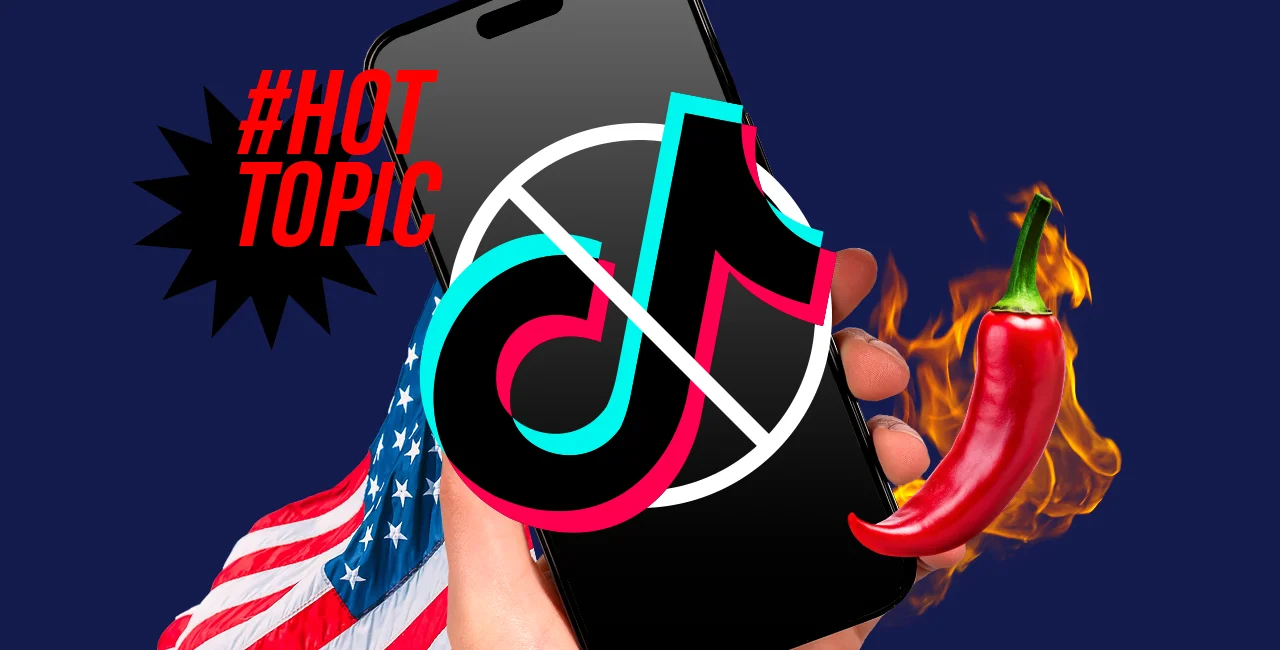TikTok, one of the most popular social media platforms worldwide, faces a potential ban in the U.S. this weekend (Jan. 19) due to privacy and security concerns linked to its Chinese ownership. But what does this mean for users in Czechia? Will they still be able to use the app after the U.S. enacts this ban?
TikTok has become a popular platform in Czechia, home to numerous well-known Czech influencers and even senior politicians who have enthusiastically embraced the app. However, the U.S. ban could signal a shift that could impact both users and creators, even outside the States.
What's happening in the US?
The U.S. seeks to ban TikTok over national security and privacy risks, alleging parent company ByteDance’s ties to China’s government could allow data access and misinformation. Other concerns include youth mental health impacts, improper data access by employees, and potential manipulation through TikTok's algorithm. TikTok denies these claims and cites compliance efforts.
The federal TikTok ban is set to take effect on Sunday. The Supreme Court has not yet ruled on a federal law requiring ByteDance to sell the app to a government-approved buyer by Jan. 19 or face a U.S. ban. If no ruling is made, TikTok plans to deactivate the app.
If the U.S. ban passes, the law will block app stores like Google Play Store and Apple’s App Store, as well as cloud service providers, from “distributing, maintaining, or updating” TikTok. Users will no longer receive updates and eventually lose access to the app.
President-elect Trump is reportedly weighing an executive order that would delay enforcement of the ban, the legality of which is uncertain.
TikTok in Czechia: Popular, but problematic
TikTok is widely used in Czechia, with the latest data from NMS Market Research showing that over 2.25 million people in the country have an account. However, Czechia ranks second to last in the EU for platform usage, with 19 percent of the population on TikTok compared to 46 percent in Luxembourg, the highest in Europe. Ireland, Spain, Romania, and Latvia complete the top five European countries for TikTok usage.
The app has in recent years encountered problems in Czechia. In 2023, the National Cyber and Information Security Agency (NÚKIB) warned Czechs against downloading TikTok, deeming it a “national security threat.” The agency cited concerns over TikTok’s potential to collect sensitive user data, which the Chinese government could access under its national security laws.
TikTok, the wildly popular video-sharing app, has taken the world by storm in recent years with its short, catchy clips. pic.twitter.com/Lape62uINX
— The European Correspondent (@EurCorrespond) July 25, 2024
This warning aligned with broader European and U.S. apprehensions regarding the app's handling of user data and its potential for misuse in influence campaigns. In response to these concerns, Prague City Hall and other government offices banned TikTok usage on employees’ work devices.
Impact on Czech users
If the U.S. ban goes ahead, the immediate impact on TikTok users in Czechia would be relatively limited, writes Czech science editor Pavel Kasik for Seznam Zprávy.
"Creators who specialize in collaborative content, for example, could gradually leave the network. Still, overnight, people outside the US probably won't even notice ban except that people on TikTok will undoubtedly discuss it," he notes.
Should a ban take place, Czech users traveling to the U.S. can still use TikTok, but they won’t get updates or be able to download the app if they don’t already have it installed.
@expats_cz Would you play this game? 👀 #czech #czechia #czechgame #videogame #panelak ♬ original sound - expatscz
In response to the potential loss of access to their favorite TikTok content, some Czech users, like many Americans, have already started downloading alternative RedNote, another Chinese social media app that closely mirrors TikTok in functionality.
As the deadline for U.S. users approaches, experts suggest that the country's ’s decision could still resonate with other nations mulling tighter regulations or outright bans on TikTok (India, for example, banned the app in 2020).
Such a ban could reshape the social media sphere entirely, with competing platforms like Instagram and YouTube potentially emerging as the primary destinations for younger audiences.












 Reading time: 3 minutes
Reading time: 3 minutes 



























